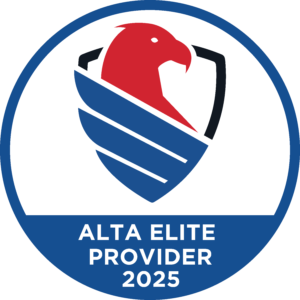George Bernard Shaw once said, “Success does not consist of never making mistakes but in never making the same one twice.” We all make mistakes. But as Notary Signing Agents, those mistakes can create significant issues for all parties involved. Fortunately, knowledge is power and knowing what some common errors are could help you to avoid them in the first place.
Mistake 1: Something is missing.
Whether the borrower forgot to sign, you forgot to sign, you forgot to stamp or someone forgot to date, some item is missing. It’s easy to miss something when you are in a rush or the circumstances surrounding the signing may be difficult. Try to review the documents before signing and tab anything that is unfamiliar or might be easily missed. Be certain to double-check your work before leaving to confirm you haven’t missed anything.
Mistake 2: The Notary stamp is illegible.
It is critical to make certain that your Notary seal is legible enough to be easily read by the naked eye and be photographically reproducible. Make certain your stamps are inked. If using an embosser, be certain that it adheres to state standards. Many states require that the embossers now use ink so that when the document is scanned, the seal is legible. More and more counties today are allowing for electronic recording, and lightly inked seals or raised seals from embossers just don’t make the cut. Having a document rejected for recording could cause funding delays and missed deadlines.
Mistake 3: Missing identification on the Patriot Act Form.
Every lender is different. Some require one form of ID while others require two. But it is so important to read the form itself to confirm how many forms are necessary. Also, be certain of the type of ID the lender allows. No one wants to go back out to a borrower’s home to verify a second form of ID.
Mistake 4: Incorrect acknowledgments.
When handling an out-of-state signing, be certain to talk to your customer about what your state requires and what is required in the state where the property is located. Just attaching your state’s acknowledgment could cause potential issues, especially when it comes to recording the mortgage or deed of trust. Most states allow you to notarize an out-of-state acknowledgment for purposes of recording a document.
Mistake 5: Not following directions.
No two signing companies, title companies or lenders are the same. Some want fax backs, some do not. Some want two forms of ID, some do not. Some want blue ink, some want black. Some want legal, some want letter and some want both. Never assume you know what it is that they want. It is critical to read and follow their instructions to the letter. Always ask questions and write down who you spoke to in case there are discrepancies down the road. Good customer service means providing the service that they ask for.
Orginally published on nationalnotary.org
Marcy Tiberio is a NNA 2015 Notary of the Year Honoree and owner of Professional Notary Services, Inc., in Rochester, New York. She can be reached at [email protected].




